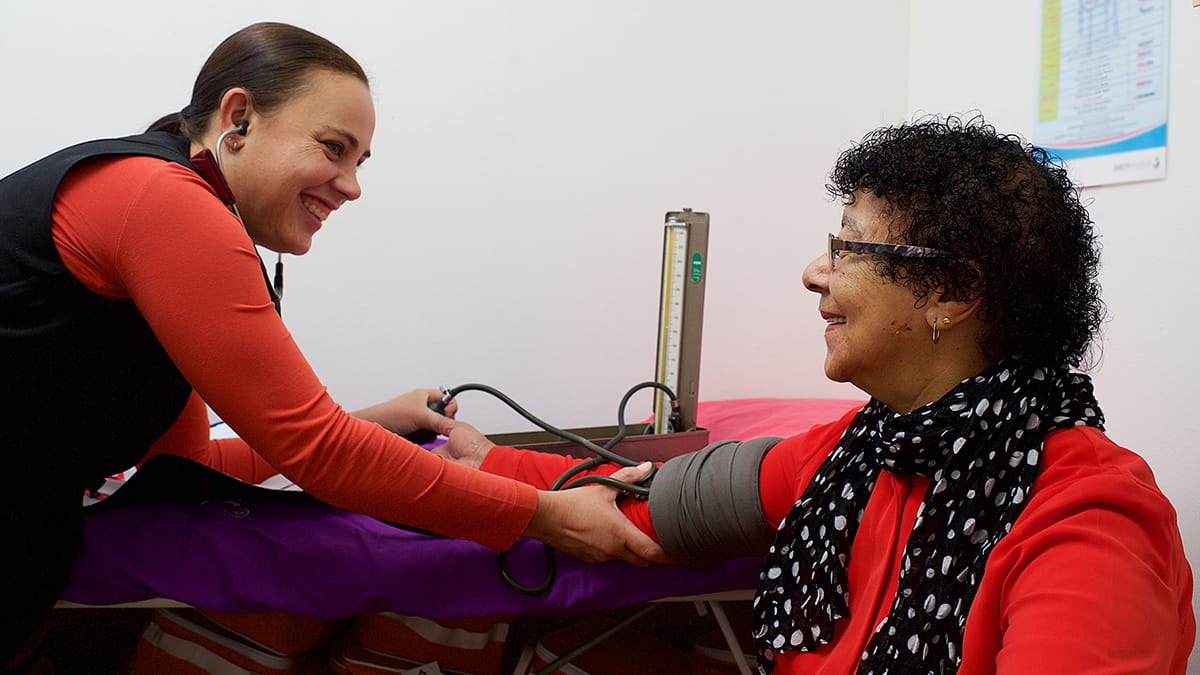Can a genetic test save your heart? (or your kids' hearts)

Does your family have a history of heart disease? What's your risk of developing heart disease or passing it on to your children?
If so, you may be a candidate for genetic testing at The Ohio State University Wexner Medical Center.Genetic testing may give you the answers to that nagging question of whether your kids might face the same health challenges one day.
Genetic testing 101
Genetic testing is basically an analysis of the DNA you inherit from your parents, says Ana Morales, a licensed genetic counselor at Ohio State. Some heart disease can be caused by alterations in your genetic material. These changes can increase your risk – or your children’s risk – of developing heart disease. Genetic testing can help pinpoint these health problems and identify possible treatment.
The Division of Human Genetics at Richard M. Ross Hospital offers genetic testing for certain heart disorders, as well as a family history risk assessment to help you manage or prevent a condition.
Should you get tested?
You should consider getting tested if you have a family history of heart disease or sudden cardiac deaths of family members at an early age (before age 55 in men, before 65 in women). Genetic testing requires a referral from your doctor.
Morales cautioned not everyone is a good candidate for genetic testing. Additionally, genetic testing won’t find all hereditary conditions.
What are the benefits of genetic testing?
For many, it’s verifying the condition you have and knowing whether you can pass it on to your children, says Morales. A positive result means there is a 50 percent chance you will pass the disease along to your children.
“A positive result doesn’t mean your children will definitely get the disease – it just means they are more likely,” says Morales.
However, just as a positive result does not guarantee the onset of heart disease; a negative result does not rule anything out either.
“That part is one of the most challenging, from the genetic perspective,” says Morales. “Imagine you’re reporting a negative result, but still saying your family members are at risk and need follow-up.”
Genetic testing also can identify siblings or other family members who may be at risk and should be screened for heart disease as well.
Will the results affect my health insurance coverage?
It’s illegal for a health insurer to use a genetic test result or family history to deny you health insurance or decide how much to charge for coverage. Family medical history or genetic test results also cannot be labeled as pre-existing conditions, says Morales. However, the information is not excluded from long-term or life insurance providers.
How much does genetic testing cost?
Morales notes most patients with insurance coverage pay about $100 out-of-pocket. However, not all insurance companies will cover genetic testing, leaving you with the total cost of around $5,000.
What to expect during genetic testing
Genetic counselors and physicians review your medical and family history, conduct a physical exam and discuss the risks, benefits and limitations of genetic testing. Then a simple blood test is sent to a private specialized lab. Genetic counselors and physicians then discuss the results and make recommendations for either lifestyle changes or referrals for additional assessment and treatment.




